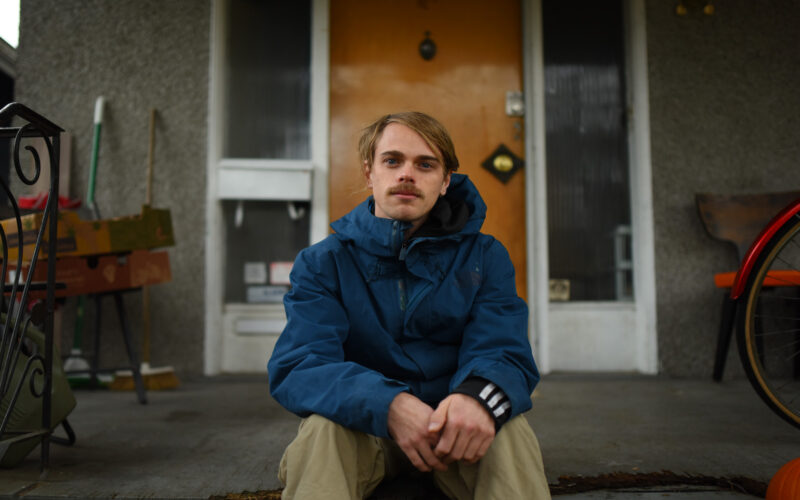“I don’t know how many fires we can avoid.”
Kaitlyn Nightingale
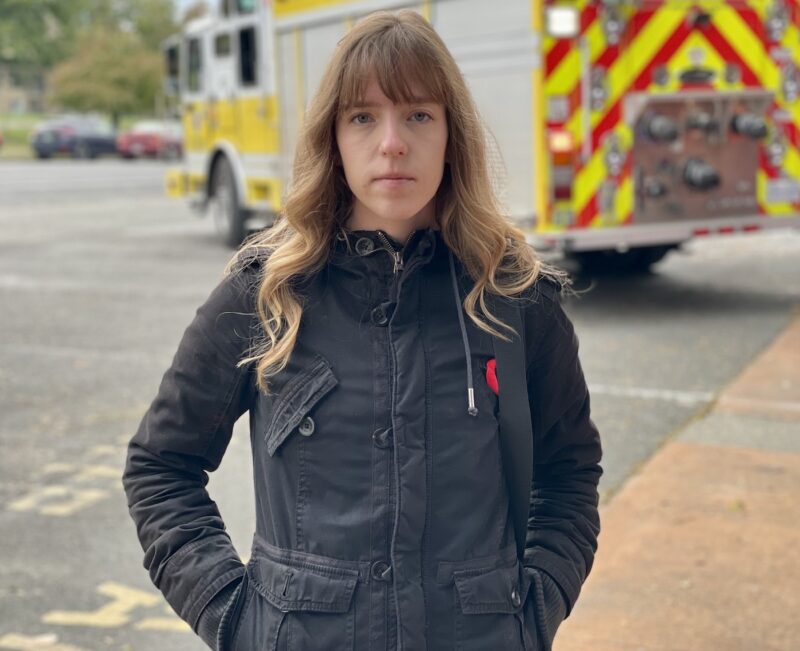
Prior to becoming a writing student at the University of Victoria in 2021, Kaitlyn attended Thompson Rivers University in Kamloops, British Columbia. Thompson Rivers is just 2 hours north of the community she grew up in: Summerland, a town of 12,000 people located in the southern interior of BC.
Known for its vineyards and growing fruits, particularly peaches, apples, apricots, and grapes, Summerland lives up to its name. The long hot summers are the main draw for visitors who find themselves exploring the outdoors, swimming in Okanagan Lake, tasting fresh fruit, or taking wine tours.
Those activities were also a draw for Kaitlyn’s family. “My family and I always loved camping and going on hikes. We had a few dogs growing up, so we’d always be out with them, or things like that.”
Kaitlyn is a triplet, one of three sisters born on the same day. To find her own identity, Kaitlyn spent her childhood exploring sports, piano, Girl Guides, and, eventually, writing. “It is something that’s both creative, as well as very technical,” says Kaitlyn, who now volunteers for an online environmental youth journal called The Starfish and works at a chocolate shop in downtown Victoria.
In 2017, Kaitlyn was working as a cashier in Summerland when wildfires scorched the Okanagan. Only one year earlier, Kaitlyn, alongside her father, mother, two sisters, two dogs and two cats had just moved to a new house up a hill where they could see the lake and the Okanagan Valley.
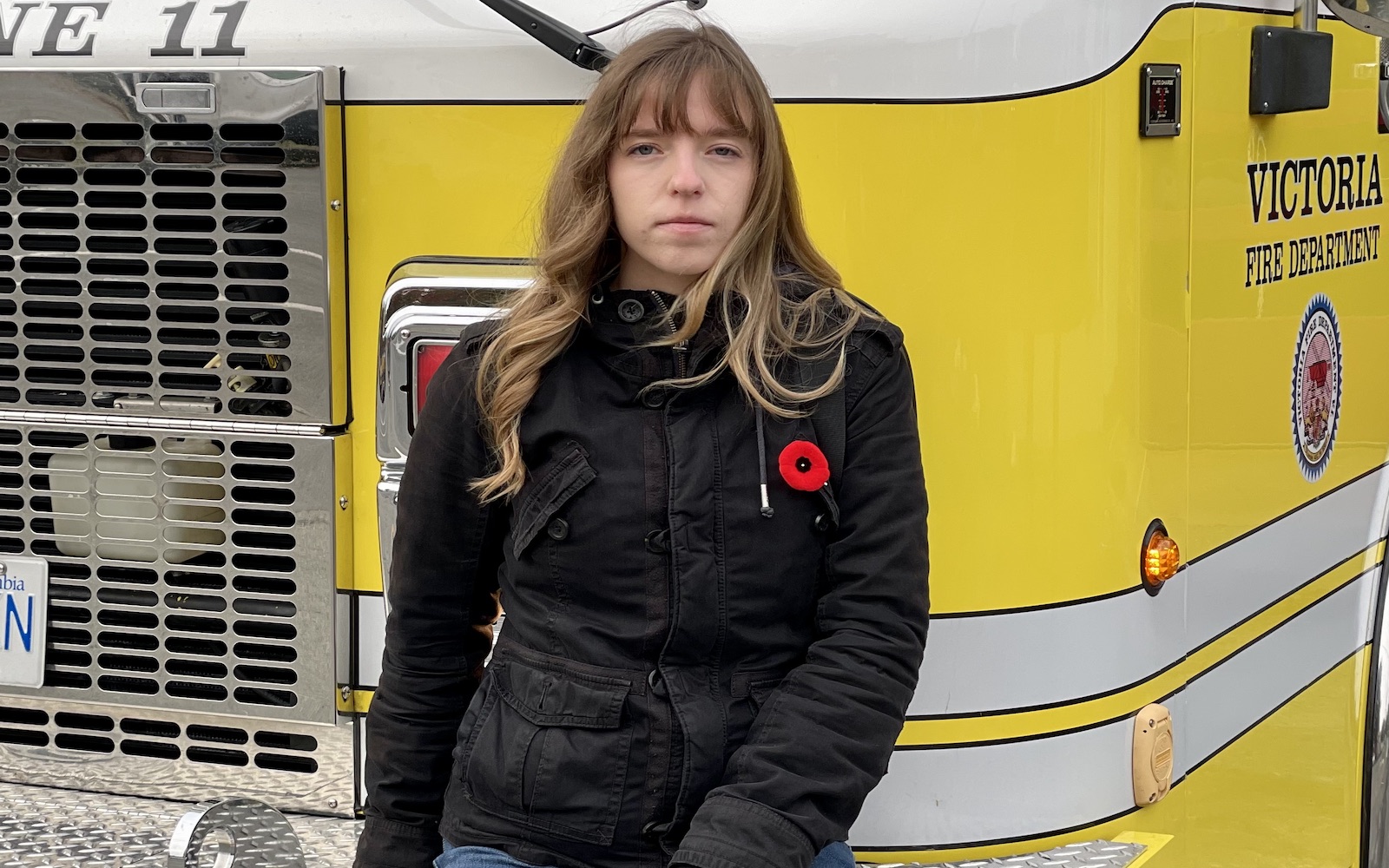
Kaitlyn was working as a cashier at the time of the 2017 Okanagan wildfires. (CDP Photo/Alexandra Lainfiesta)
You could see a lot more of the areas that might have been experiencing fires. You can see off in the direction of Kelowna. There’s a lot of fires, down the other way, to the south, where they had a lot in Okanagan Falls, in Osoyoos, and across the lake to Naramata where we would see more fires. We often refer to the summer as wildfire season, even before the fires begin each year.
One vivid memory I have was late August, early September 2017. There was a bad storm and we saw the bolt of lightning hit the mountain on the other side of the lake. We watched the fire start. All night we had binoculars out trying to see if there were flames. We were checking the fire maps to see if it was reported, if it was spreading, and how. We could see all the emergency vehicles rushing out there. I think the sound of the sirens was very noticeable. The community is usually very quiet. There’s not a lot of sirens.
Something that I remember from that year was our big garden at my family’s house. We were getting ready to harvest tomatoes for salsa. My mom always cans about thirty jars of salsa using produce from the garden and local fruit stands. We were standing in the garden picking cherry tomatoes and eating some at the same time.
Some were just not great. A bunch of the tomatoes had gone bad from the smoke. They would look red and ripe and ready to eat, but you would take a bite and it tasted like smoke. It tasted off. I remember that one plant in particular almost tasted like soap. We couldn’t even swallow them. They tasted so terrible, we had to throw out the entire plant.
It was the smoke that was the most noticeable. The sky looks a little bit hazy. Some days you couldn’t see the other side of the lake when normally, even on a rainy day, you can see the other side. The smoke was that thick. Many people jokingly now call the area “Smoke-anagan.”
Smoke has become so common that it brings me nostalgia when I smell it because the area has had such bad fires over the last few years: kind of like how people associate certain smells with the Christmas holidays. I don’t remember ever during my childhood having to stay indoors because it was smoky. But over the last 5 or 6 years, that’s completely normal.
I don’t have anybody that I know who had been evacuated or their property damaged, although I’m sure that people in our town did experience that. When I was working in the grocery store, actually, I remember there were some government programs that would supply people who had been evacuated with a certain amount of groceries. As a cashier, being at the front of the store, I’d be handing out those coupons or the paperwork to get the free groceries.
Quite bizarre, having customers go about their daily lives and having the next customer come in and say they’d had to let all their horses go because they were evacuated. An older lady I recognized as a regular local customer told me the livestock can’t stay in the pens because they’d be in danger. So they opened the gates and hoped they can recover their livestock after.
Climate change is so close by us now. We have a fireproof box that we keep all of our passports, birth certificates, and official documents. We usually kept photo albums close by the doors as well, just so that we could save those memories. When we were younger, we didn’t have anything digitalized. I think we have some of our pet supplies near the door, like the cat carriers in case we need them quickly.
I don’t know how many fires we can avoid. My family has been really lucky to not have had to evacuate, but I can imagine very clearly that there would be a time in the future that that wouldn’t be the case. Fires keep getting progressively worse with climate change.
In 2017, we had the fires, then we had some flooding from the lake, then we had a cold snap that year, and then the heat the next summer. It starts to build on people. But I hope, too, that it starts to wake people up to the effects of climate change.
Realizing climate change is bringing those effects to us so much more than they used to could help show people it’s now. I’ve seen some pushes for the declaration of climate change as an immediate threat. I think that could be useful in helping people who don’t really realize it if they haven’t lived through many climate crises that it’s getting worse and there’s a reason for it. It can’t really be ignored.
This story was originally published in the Royal British Columbia Museum, on January 15, 2023.
Related Stories
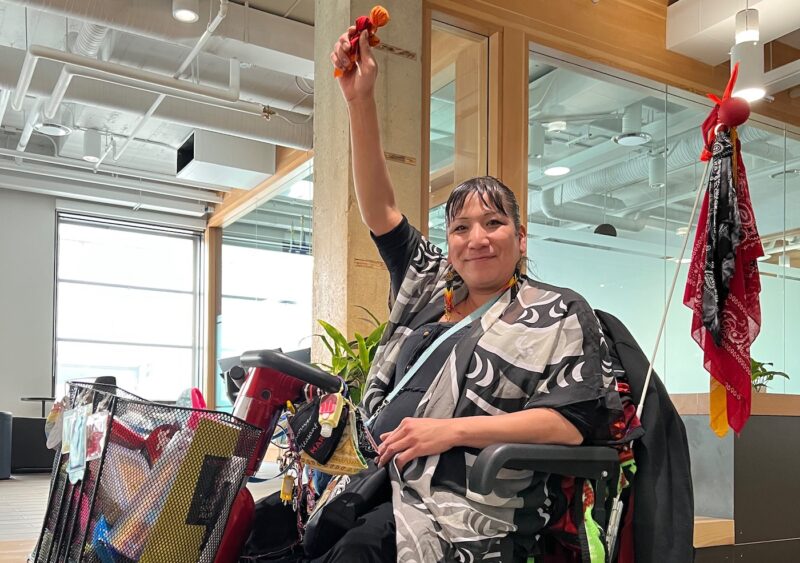
Suzanne Kilroy/Huculak, East Vancouver, Canada
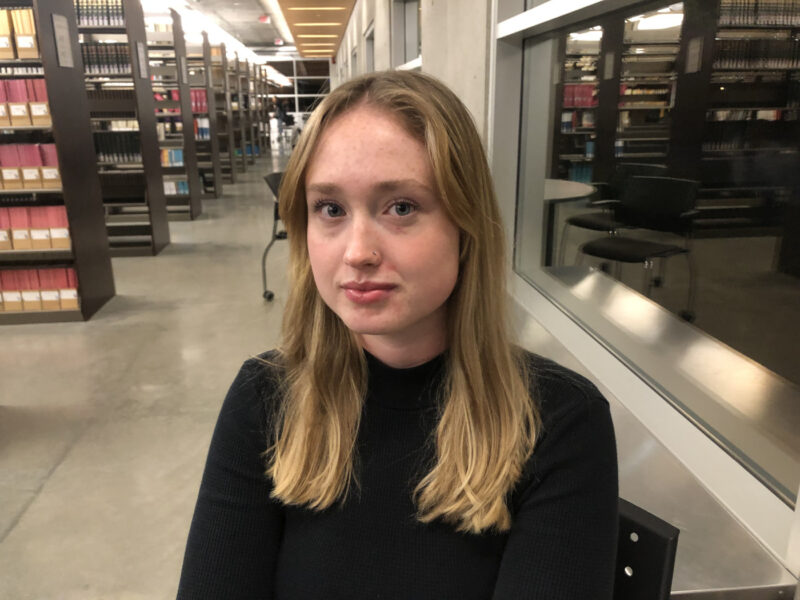
Claudia Culley, Clearwater, Canada
